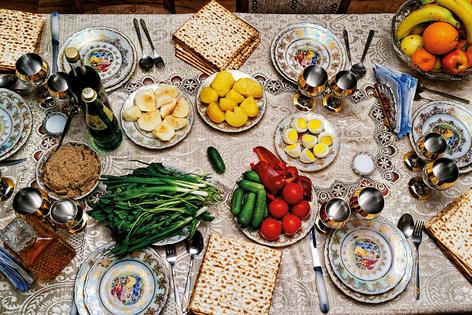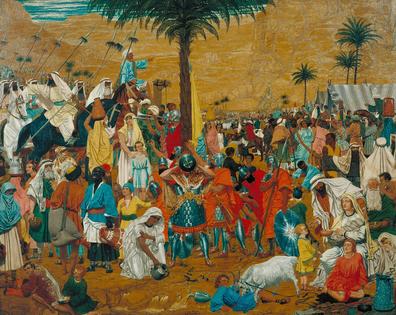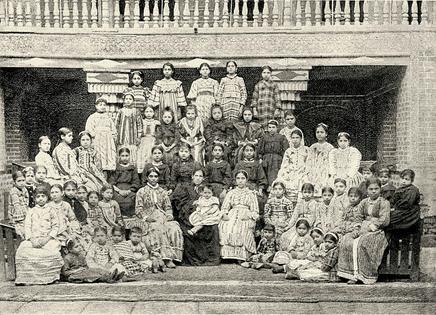Passover: The festival of freedom and the ambivalence of exile
Published in News & Features
The Jewish holiday cycle is, to a large extent, an exploration and commemoration of the experience of exile. The fall festival of Sukkot, for example, is celebrated in small booths, temporary shelters that recall the Israelites’ experience sheltering in tents while wandering in the desert for 40 years after fleeing slavery in Egypt. The story of Purim, a springtime festival, takes place when ancient Jews lived in exile in the Persian Empire – and illustrates the precariousness of life as a minority.
And then there’s Passover, which begins on April 22, 2024. It marks the Israelites’ Exodus from Egypt – the first step toward redemption. The theme of freedom dominates the holiday.
Passover is the only holiday that marks the transition from exile to wandering, and not to homecoming, highlighting the complexity of exile – the focus of my recently published book, “Exile and the Jews,” co-edited with Marc Saperstein.
As a literary scholar, I look to novels and memoirs for examples that illustrate exile and its aftermath from different perspectives. Here I focus on those from the Jewish communities of Egypt and Iraq, sites of the two major exiles in Jewish history.
In her 1983 novella “The Miracle Hater,” the late Israeli novelist Shulamit Hareven depicts the Hebrews in their passage from Egypt and their first taste of freedom. Writing a modern “midrash” – a rabbinic genre that elaborates on a biblical text – she reimagines the story of Exodus.
Whereas the biblical description centers on heroic leaders like Moses and Joshua, Hareven concentrates on the unnamed masses: the Jewish slaves who have just crossed the Red Sea, now faced with life in the desert and becoming a new community.
Hareven’s narrative elaborates on the uprooting wrought by the Exodus, exploring the unexpected ambivalence with which the Hebrews face their newfound freedom. They have fled oppression, but that means leaving everything familiar to wander, seemingly endlessly, in the great unknown of the desert.
Israeli writer Orly Castel-Bloom weaves family lore, history and some alternative history into “An Egyptian Novel,” published in 2015. She both invents and lays claim to the one family who did not join the exodus in ancient times but remained in Egypt throughout the ages. Although they are merely a passing mention, their existence gives the reader pause to wonder if indeed any of the Hebrews stayed behind.
Many Jews did stay behind after the next major exile in Jewish history, which began when Babylonia besieged Jerusalem and deported residents of the conquered city in 586 B.C.E. When Persian king Cyrus the Great issued an edict almost 50 years later inviting the Jews to return to Jerusalem and the land of Judah, only a minority did so. Those who remained in Babylon became the root of the diaspora and established the oldest continuous Jewish community in the world.
More recently, Jews have lived in both of these sites of ancient exiles: modern-day Egypt and Iraq. While those in Iraq could claim a history of hundreds of years, those in Egypt were more likely to have moved there within the last few generations.
...continued

















Comments